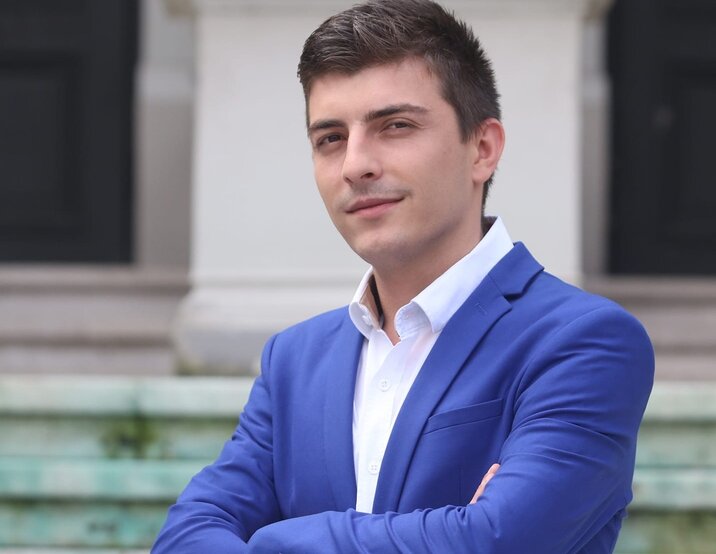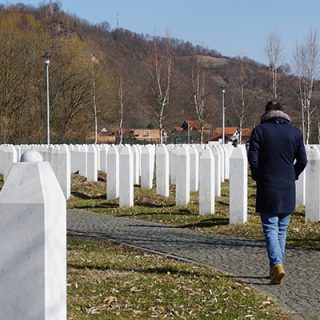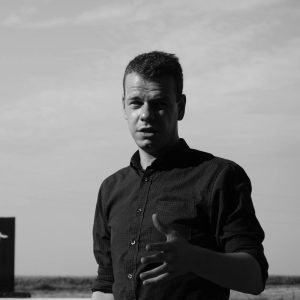The leaving of Mile Đukanović marks the end of an era in the Montenegrin political life. Far from being ideal, and much nearer to the criminal structures, the politician Đukanović was, however, successful in achieving one thing – facing the past and admitting errors. Such as the genocide in Srebrenica and the surrender of Bosniak civilians to the paramilitary forces.
Given the state of the Montenegrin society back then, he survived facing the past, but for other politicians in the region, this is too big to handle, given the mostly nationalist and war-mongering statements and denial coming from them.
When the SNSD leader and President of Republika Srpska, Milorad Dodik, said that Serbs were guilty of the genocide in Srebrenica, he was one of the rare politicians who used that term before genocide was proven before the court. He knew, however, that such a narrative would not keep him in power, so he changed his discourse.
When he was opening the student centre ”Radovan Karadžić” in Pale in 2016, which had never been officially named after Radovan Karadžić, but was rather called by his name by people, I spoiled Dodik’s mood by asking a question: ”Do you remember when you said that Radovan Karadžić stole millions from the treasury of the National Bank?”
”Get lost, please”, Dodik said, followed by an applause.
I did not feel comfortable going back to my car after this, but I knew I was doing the right thing, just as Dodik used to do. Instead of an applause, I got the contempt and profanities of passers-by, but ok, it is a process and harder way. And more and more people chose not to go that way. The masses need fun, lynching parties and celebration of infamous people from the past and it is just a matter of whether you will satisfy and strengthen the masses or whether you will bust myths and emancipate them.
Facing the past means hard work and it frequently comes at a high cost: money, career, popularity, power. And if it is not a matter of education and understanding, then it is a matter of ethics and morals. Whether you will look the truth in the eye and risk to be slapped by the public or embrace a lie that you will use as the opium for the masses.
Not even the legal prohibition of denial of genocide, war crimes, crimes against the humanity and glorification of war crimes has had a significant impact on facing the crimes from the past. Without investigations and indictments, the judicial system is sending the message that such acts are allowed. Decades of denial narratives have had consequences – it seems that dehumanisation of a whole people is more and more present, such as the insulting board on the City Hall in Sarajevo that reads ”Serb criminals”, since a crime has no nationality and is not part of the genetic code, no matter how hard some people tried to prove it and failed at it. It is a fact that it was committed by the Army of Republika Srpska and that these people must be held accountable, but without tying the crime to a whole nation, including also those born after the war, like me, or newborn children that frequently get the primary and burdensome part of the collectivity – the nation, as early as in their mother’s womb.
A large part of the dehumanisation will implicitly be approved even by those who are truly trying to find the truth and they will turn a blind eye when war criminals such as Sakib Mahmuljin are glorified, since nobody wants to be the first ”cleaning their own yard”.
Not all Germans have fully accepted errors from World War II, but the politicians and the educational system have done this. For this reason, if a German cries over the destiny of Holocaust victims, this is not newsworthy. However, it is quite a piece of news if a Serb cries over the destiny of genocide victims from Srebrenica. As a result, given the fact that I cried during the screening of the movie ”Quo vadis, Aida” by Jasmila Žbanić, I became the news in the coverage of national, regional and global media such as the New York Times. Serbs, it seems, do not normally cry over other people’s suffering.
Such a situation is a consequence of a feeling of injustice, since many war criminals have not been prosecuted, some crimes were punished with mild sanctions, and politicians and leaders of nationalist parties refuse a deeper cooperation except for the one needed to divide the power, pluck the budget, public funds, grants and donations. Educating, raising awareness and emancipating a society comes at a cost. However, the development of democracy and facing the past would close this chapter and people would develop an interest in economy, rule of law, security, living conditions and quality of public health, transport, public administration. It is clear that this is neither an option nor a priority for the ruling castes.
There is no collective catharsis and there may be no catharsis under ideal conditions, and especially not under repressive, autocratic and nationalist conditions. It is therefore necessary that changes be initiated by those governing the political and social processes – namely the media, mostly mainstream media, public services, politicians, educational policy creators and public personalities, and especially artists, who should be among the first ones initiating such changes.
Facing the past is costly for politicians, but it is infinitely more costly for the prosperity and future of the whole society.
Slađan Tomić is a journalist who started his career in the news programme of the Television Service of the Federation of Bosnia and Herzegovina, and later on worked as part of the newsroom of TV1, Mediacentar and BUKA. In his work, he focuses on the issues of political responsibility, corruption, respect for human and civil rights and media responsibility. He frequently works as a media literacy trainer. As a junior researcher, he conducted several studies and he is also the author of the Special Report on Genocide Denial on TikTok by the Memorial Centre Srebrenica. He is a MA student of Journalism at the Faculty of Political Sciences in Sarajevo.




